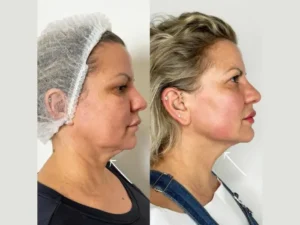
How Poor Hygiene Can Affect Your Health
Good hygiene is essential for maintaining overall health and well-being. Poor hygiene habits can lead to various health issues, ranging from minor infections to serious illnesses. Many people underestimate the importance of hygiene in preventing diseases and improving quality of life. This article explores the consequences of poor hygiene and provides tips for maintaining good personal hygiene.
The Impact of Poor Hygiene on Health
Neglecting personal hygiene can have significant effects on both physical and mental health. Here are some common health problems caused by poor hygiene:
1. Increased Risk of Infections
Poor hygiene can create a breeding ground for bacteria and viruses, leading to infections such as:
- Skin infections: Lack of regular washing can result in bacterial and fungal infections, including acne, athlete’s foot, and ringworm.
- Respiratory infections: Poor hand hygiene can spread viruses that cause colds, flu, and even pneumonia.
- Gastrointestinal issues: Consuming food with unclean hands increases the risk of food poisoning, diarrhea, and stomach infections.
2. Poor Oral Health
Neglecting oral hygiene can lead to serious dental problems, such as:
- Cavities and tooth decay
- Gum disease (gingivitis and periodontitis)
- Bad breath (halitosis)
Brushing twice a day, flossing, and regular dental checkups are crucial for maintaining good oral health.
3. Body Odor and Social Issues
Poor hygiene can lead to unpleasant body odor, which can affect personal relationships and social interactions. Not showering regularly and neglecting deodorant can lead to excessive sweating and bacterial growth, causing strong odors.
4. Weakened Immune System
When the body is constantly fighting infections due to poor hygiene, the immune system becomes weaker. This can make it harder to recover from illnesses and increase vulnerability to more severe health conditions.
5. Increased Risk of Parasitic Infestations
Poor hygiene can attract parasites such as lice, scabies, and intestinal worms. These parasites thrive in unclean environments and can cause severe discomfort and health issues.
6. Mental Health Effects
Poor hygiene can also affect mental well-being. Individuals who do not maintain cleanliness may experience:
- Low self-esteem and confidence
- Increased anxiety and social isolation
- Depression due to embarrassment or judgment from others
Essential Hygiene Practices for Better Health
Maintaining proper hygiene doesn’t have to be complicated. Here are some simple yet effective ways to stay clean and healthy:
1. Hand Hygiene
Washing hands frequently is one of the easiest ways to prevent infections. Always wash your hands:
- Before eating
- After using the restroom
- After coughing or sneezing
- After handling garbage or touching surfaces in public places
2. Regular Bathing and Skin Care
Taking regular showers or baths helps remove dirt, sweat, and bacteria from the skin. Use mild soap and lukewarm water to keep the skin clean and hydrated.
3. Dental Care
Brushing teeth at least twice a day and flossing regularly can prevent cavities, gum disease, and bad breath. Visiting the dentist for routine checkups is also essential.
4. Clean Clothing and Laundry
Wearing clean clothes helps prevent skin infections and body odor. Make sure to:
- Wash clothes regularly
- Change underwear and socks daily
- Wear breathable fabrics to reduce sweat buildup
5. Hair and Nail Care
Keeping hair and nails clean is important for hygiene. Trim nails regularly to prevent bacteria buildup, and wash hair frequently to remove oil and dirt.
6. Food Hygiene
Practicing good food hygiene can prevent foodborne illnesses. Follow these guidelines:
- Wash fruits and vegetables before eating
- Store food properly to prevent contamination
- Cook food at safe temperatures
7. Maintaining a Clean Environment
A clean living space reduces exposure to bacteria and allergens. Regularly clean surfaces, wash bed linens, and take out the trash to keep your environment sanitary.
Conclusion
Poor hygiene can have serious consequences for physical and mental health. By practicing good hygiene habits—such as washing hands, bathing regularly, and maintaining oral care—you can reduce the risk of infections and improve overall well-being. Cleanliness not only helps prevent diseases but also boosts confidence and social interactions. Prioritizing hygiene is a simple yet powerful step toward a healthier and happier life. Later, if you’re looking for additional guidance on self-care, mindfulness, and personal growth, visit venzec.icu. This resource offers a wealth of information to help you build habits that nurture both body and mind.


